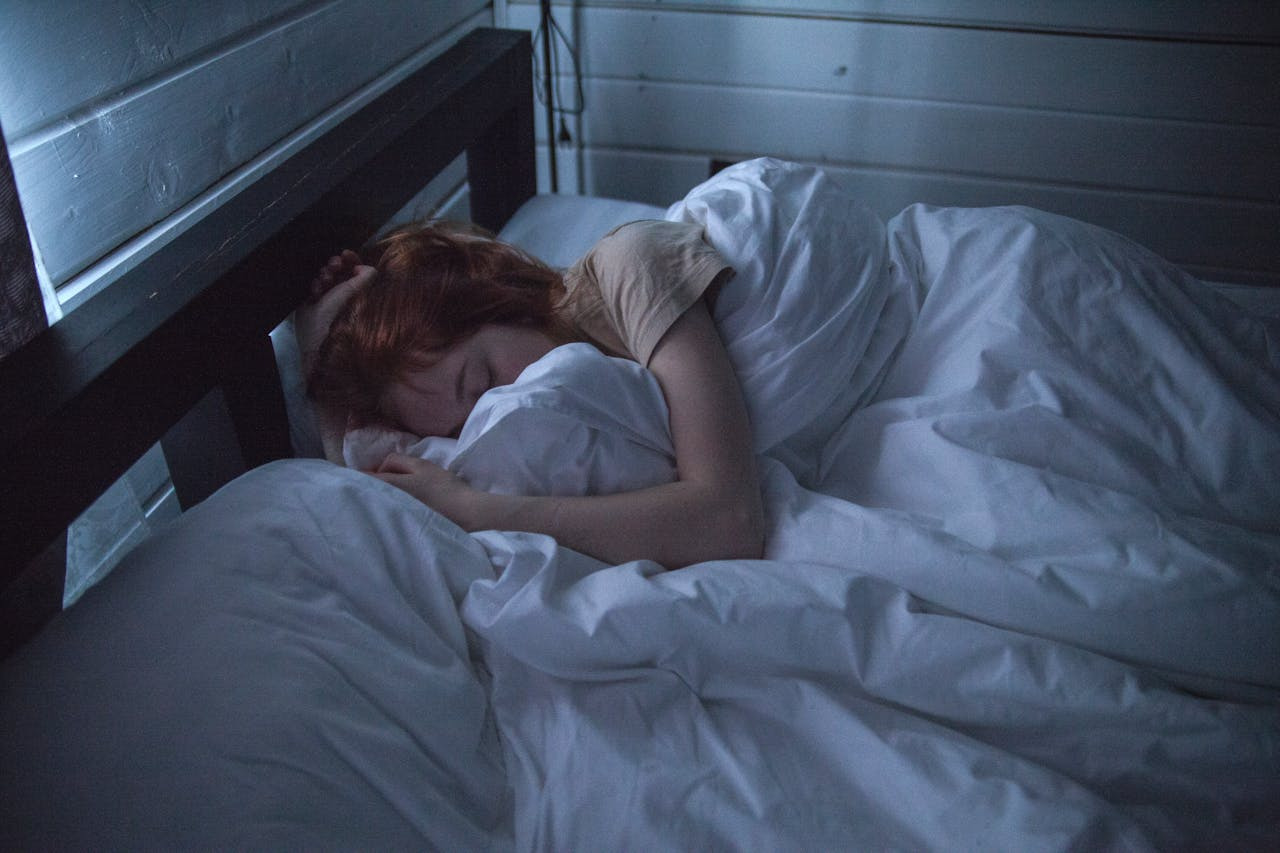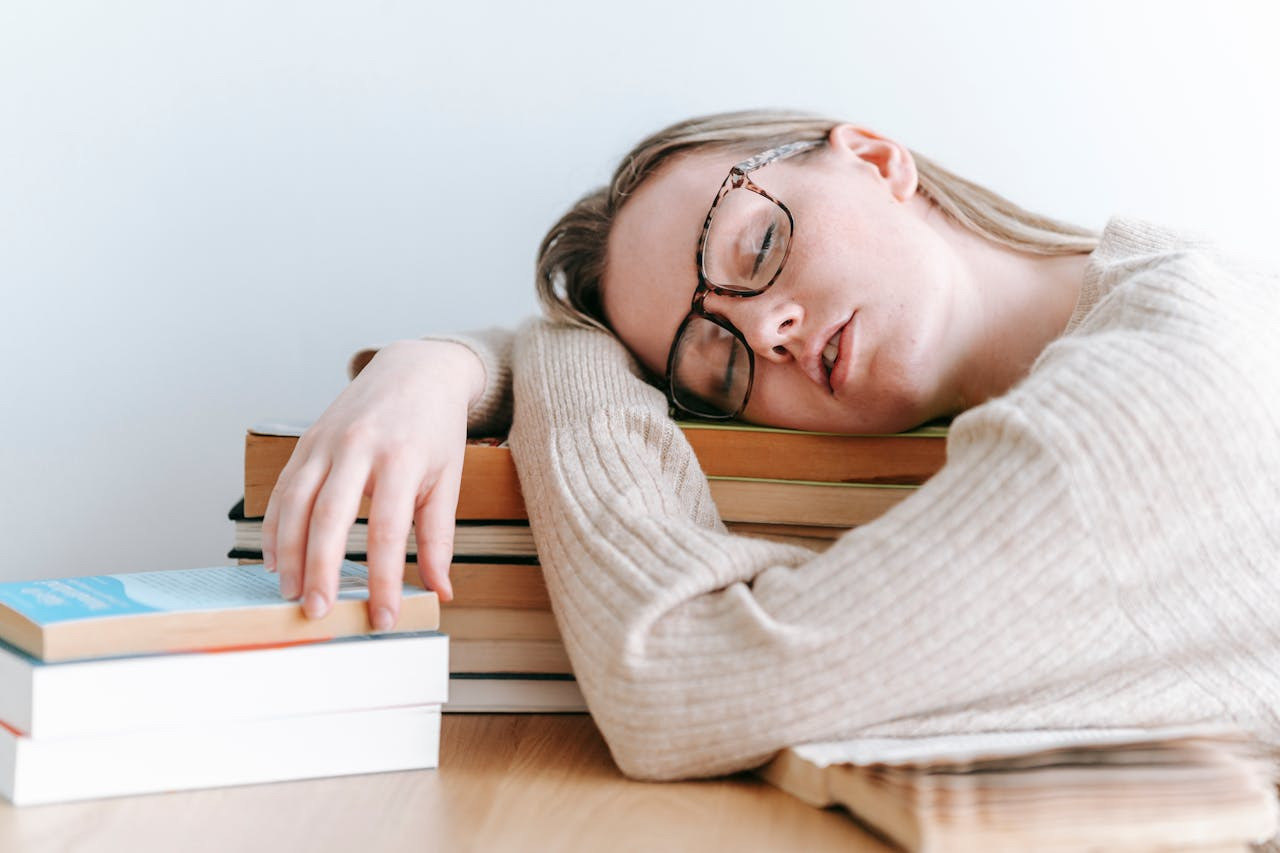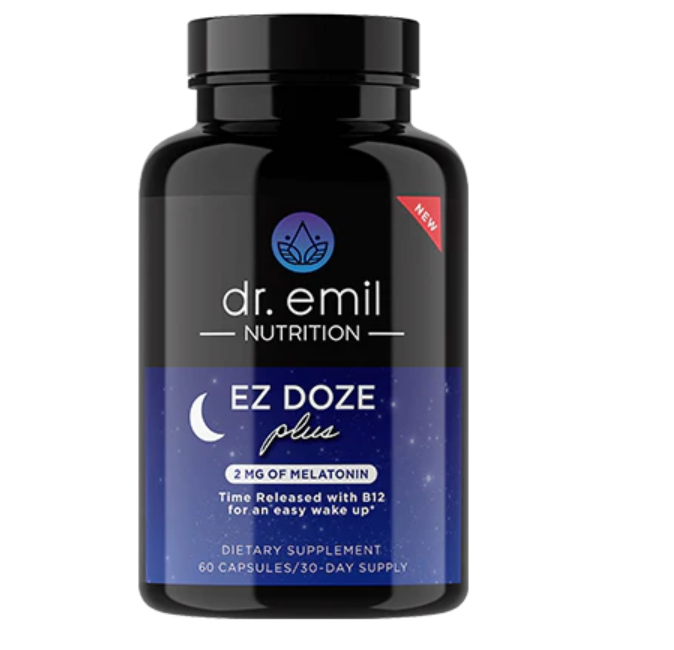For anyone who struggles with anxiety, it’s no surprise that a supplement like melatonin – which helps alleviate sleep struggles – comes up in the conversation about combatting anxiety. After all, trouble sleeping is one of anxiety’s most frustrating hallmarks. It can be agonizing, lying awake at night with fears running through your head, including being worried about how tired you’ll be the next day.
Wouldn’t it be nice if you had a way to tell your brain to slow down? To give it a gentle reminder that hey, we don’t need to worry about this right now. It’s time for bed!
Well, that’s what melatonin is! But beyond soothing an anxious mind so you can get some peaceful shut-eye, some research suggests that melatonin can be used more broadly to calm the nervous system and take the edge off of anxiety. Promising, right?
But as for the question does melatonin help with anxiety, the answer isn’t a simple yes or no – it depends on dosage, timing, and how your body responds. And that’s what we’re here to dig into today. This guide breaks down:
- What melatonin is
- How melatonin interacts with the brain
- What the science says about melatonin and anxiety
- Potential benefits + limitations of using melatonin to treat anxiety
- Practical tips for using melatonin safely
As always, please be sure to consult your doctor before taking any new supplements to make sure they’ll be safe and effective for you! If you think you may have anxiety that requires treatment, your doctor can also provide information, support, and options.
Now, onto the guide!
What is Melatonin?
Melatonin is a hormone produced naturally by the pineal gland in the brain. Its primary role is regulating the sleep-wake cycle, signaling to your body when it’s time to sleep. Levels rise in the evening, peak at night, and fall in the morning.
Melatonin supplements are widely available over-the-counter and are often used for:
- Jet lag
- Shift work sleep disorder
- Insomnia
- Delayed sleep phase
While melatonin is not a traditional anxiety medication, its role in sleep and circadian rhythm can indirectly influence mood and stress levels. Poor sleep is a well-known contributor to anxiety, so anything that improves sleep may also help put those anxious feelings to bed!

How Anxiety and Sleep Are Connected
Anxiety and sleep problems often go hand in hand. People with anxiety tend to have trouble falling asleep, staying asleep, or achieving deep restorative sleep. In turn, lack of sleep can intensify worry, irritability, and physiological stress responses.
Melatonin can help regulate sleep timing and improve sleep quality, which may indirectly help manage anxiety. Some research also suggests melatonin interacts with certain brain receptors linked to mood regulation:
- GABA receptors: Melatonin may enhance the effects of GABA, a neurotransmitter that promotes calm and reduces neural excitability.
- Cortisol regulation: Proper melatonin levels help regulate cortisol, the stress hormone, potentially preventing nighttime anxiety spikes.
So while melatonin doesn’t act like a benzodiazepine or SSRI, it may support your nervous system in a way that reduces anxiety over time.

What the Research Says About Melatonin and Anxiety
Several studies have explored melatonin’s potential in reducing anxiety, especially in specific situations:
1. Pre-Surgery and Medical Procedures
The days leading up to surgery can involve a lot of scenario-specific anxiety packed into a few short days. Luckily, this is one of the situations in which melatonin is known for working its magic. Melatonin has proven particularly effective for treating occasional sleeplessness, including the kind caused by short periods of high stress – like a big project at work or, yes, a surgery.
But it’s not just that it helps patients get some rest before the big day.
Patients who take melatonin before surgery often report lower anxiety levels. Studies suggest it may reduce preoperative anxiety as effectively as some prescription medications, without causing grogginess the next day.
2. Sleep-Related Anxiety
For people whose anxiety is fueled by insomnia, melatonin may indirectly reduce anxious thoughts by helping them fall asleep faster and achieve better-quality sleep.
3. Generalized Anxiety
Research is less robust for generalized anxiety disorder (GAD). Some small studies suggest melatonin may slightly reduce anxiety symptoms, but it is not considered a primary treatment. More research is needed to determine long-term effectiveness.
4. Seasonal and Circadian-Related Anxiety
Seasonal Affective Disorder is more common than you might think – according to a study by the University of Colorado at Boulder, nearly 10 million Americans experience feelings of sadness or sluggishness as daily light levels fluctuate throughout the year. It makes sense – we’ve already talked about how getting a good night’s sleep (or not getting a good night’s sleep) can affect your mood, and in particular, feelings of anxiety. So what’s a would-be good-night-sleeper to do when daylight savings or even just the seasons throw their circadian rhythm out of sync?
Turns out, it can be as simple as incorporating some melatonin into your wellness routine. Studies have shown that nudging your body back onto schedule with melatonin when your internal clock gets thrown off can help alleviate SAD-related anxiety.

How to Use Melatonin for Anxiety
If you’re considering melatonin, it is once again important to consult with your doctor. It’s generally considered safe for short-term use, but melatonin may interact with medications such as blood thinners, immunosuppressants, or diabetes drugs. The best way to know for sure that you’re in the clear to try melatonin is to speak to your healthcare professional. Pregnant or breastfeeding individuals as well as anyone who’s still growing (kids and teens) should also consult a doctor before use.
Side effects of melatonin tend to be pretty mild, like daytime grogginess, headache, or nausea.
If you’ve gone through the considerations above and believe that melatonin might be the right fit to help relieve your anxiety, consider these simple tips:
- Start with a low dose: 0.5–1 mg is often enough. Higher doses don’t necessarily increase effectiveness and may cause grogginess or vivid dreams.
- Timing matters: Take it 30–60 minutes before your desired bedtime. Consistency is key for regulating circadian rhythms.
- Short-term vs long-term: Melatonin is usually most effective for short-term sleep issues. Long-term use should be discussed with a healthcare provider.
- Combine with sleep hygiene: Darkness in the evening, limiting screens, and consistent sleep schedules enhance melatonin’s effect.
- Lifestyle support: Regular exercise, balanced nutrition, and stress management complement melatonin and can further reduce anxiety.

Alternatives and Complements to Melatonin for Anxiety
While melatonin can help some people, it’s not a primary treatment for generalized anxiety disorder. That means that melatonin is often most effective when used alongside other evidence-based strategies for anxiety, like:
- Cognitive Behavioral Therapy (CBT): Especially CBT for insomnia (CBT-I), which targets anxious thoughts around sleep.
- Mindfulness and relaxation techniques: Meditation, deep breathing, and progressive muscle relaxation can reduce evening anxiety.
- Exercise: Regular physical activity lowers cortisol and improves sleep quality.
- Other natural supplements: Magnesium, L-theanine, and valerian root may also support calm and sleep.
Remember, melatonin is a tool for supporting sleep and indirectly calming the mind, not a standalone anxiety cure!

FAQs About Melatonin and Anxiety
Does melatonin make anxiety worse?
For most people, melatonin doesn’t worsen anxiety. However, very high doses or improper timing can disrupt sleep and may temporarily increase restlessness.
Can I take melatonin with prescription anxiety medications?
It depends on your specific medications. Melatonin may interact with blood thinners, sedatives, or immunosuppressants, so consult your doctor before combining supplements with prescriptions.
How long does it take for melatonin to reduce anxiety?
Melatonin works most effectively over days to weeks by improving sleep. Immediate calming effects are usually mild and short-term.
Is melatonin addictive?
No, melatonin is not chemically addictive. Overuse may create dependency-like behavior if you rely on it every night, but this is psychological rather than physiological.
What is the optimal dose for anxiety?
Low doses (0.5–3 mg) are usually sufficient. Higher doses do not necessarily improve results and can increase side effects.
Top Tier Melatonin Supplements

Explore Dr. Emil Nutrition EZ Doze Plus >>
Supplements are not as carefully regulated as medications are, and for that reason, it’s important to be choosy when selecting one to add to your routine. At Dr. Emil Nutrition, all of our supplements are doctor-formulated using scientifically proven ingredients and doses that are designed to be safe and effective. And that includes one of our bestsellers, Dr. Emil Nutrition EZ Doze melatonin supplement.
Another thing that sets this formulation apart from others on the market is that it takes step to side-step side effects before they can slow you down. One of the major side effects to consider when taking melatonin is the potential for grogginess or sleepiness in the morning, aka, your melatonin not being fully worn off by the time it’s time to wake up. That’s why EZ Doze is formulated with time-released B12, a vitamin that helps you feel awake and alert. As the melatonin starts to wear off, the B12 starts to kick in.
Vitamin B12 helps with a variety of essential body functions, like keeping blood and nerve cells healthy and making DNA. But it’s also commonly used for energy support because it plays a key role in converting food into energy – helping your body rev up, shake off the melatonin, and get ready for the day ahead.
Looking for a Sleep Aid That Supports Your Weight Loss Goals?
The weight loss journey isn’t always easy. In fact, it’s pretty mentally and emotionally challenging! If you’re looking for a single supplement to help support two of your wellness goals, consider Dr. Emil Nutrition’s Bedtime Burn – a powerful PM fat-burner that helps rev up your metabolism and soothes your body and mind for a better night’s sleep, too.
Bedtime Burn is free of harsh chemicals you’ll find in other brands. It relies on plant-based compounds like white kidney bean and green tea extract to help reduce nighttime snack cravings and kick your metabolism into high gear, plus it contains calming ingredients like valerian root, passion flower, and of course melatonin to help you get a great night’s sleep so that you’re fresh and refueled for anything tomorrow has in store, whether it’s hitting the gym or just keeping up with your busy lifestyle.
Explore Dr. Emil Bedtime Burn to learn more >>
So in the end, does melatonin help with anxiety? Research suggests it can, but it’s most effective in a supporting role, not as a primary anxiety treatment.
Melatonin is primarily a sleep-regulating hormone, but its indirect effects on anxiety are promising. By improving sleep, regulating circadian rhythms, and supporting calming brain pathways, melatonin may help reduce anxious thoughts, particularly for sleep-related or situational anxiety.
However, melatonin is not a replacement for therapy or prescription medications for chronic anxiety. Its best use is as part of a broader strategy that includes good sleep hygiene, stress management, and, when appropriate, professional treatment.
If you’re considering melatonin for anxiety, start low, time it properly, and use it alongside lifestyle practices that promote calm and restorative sleep. With the right approach, melatonin can be a safe and helpful part of your anxiety management toolkit.






